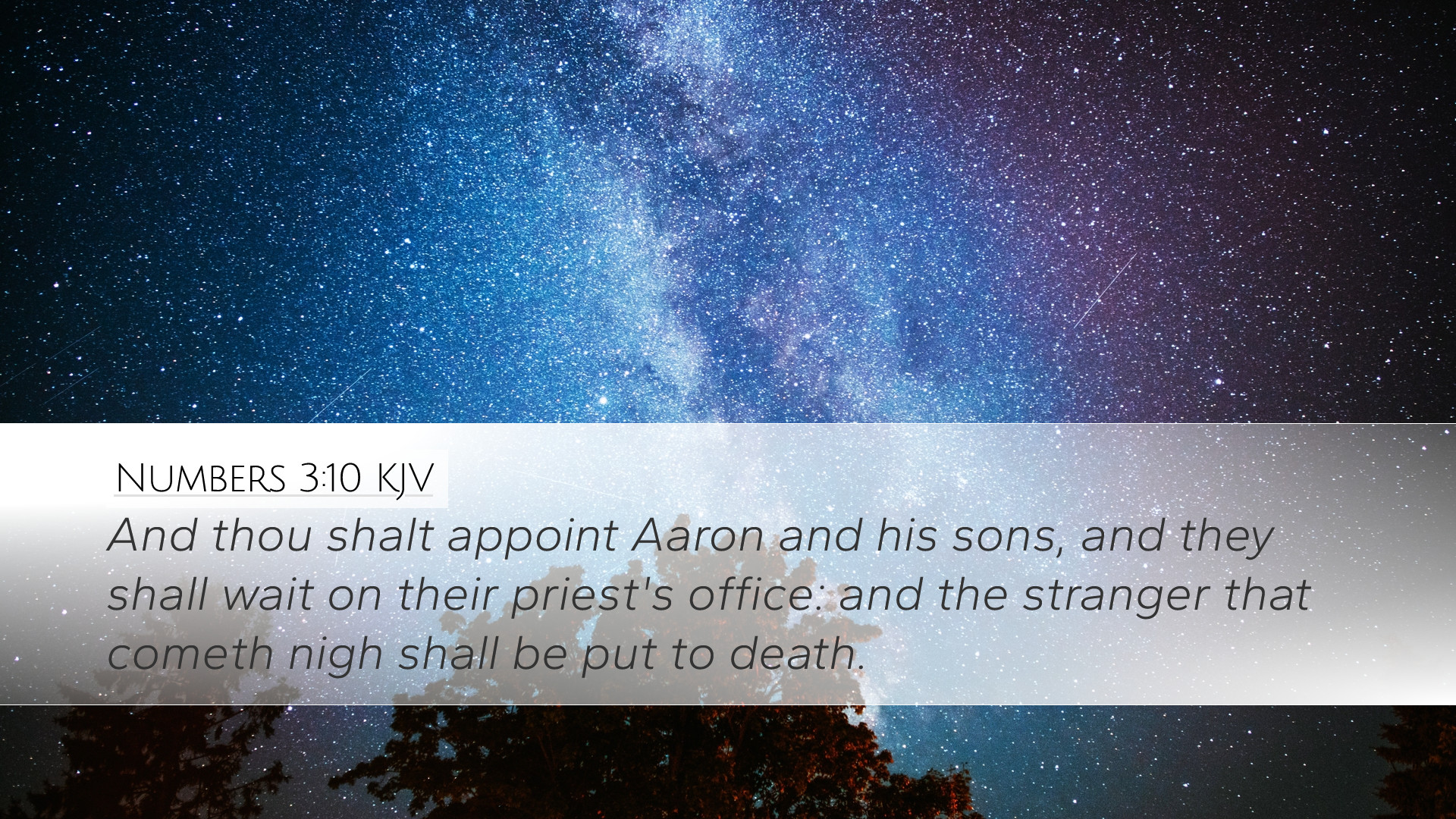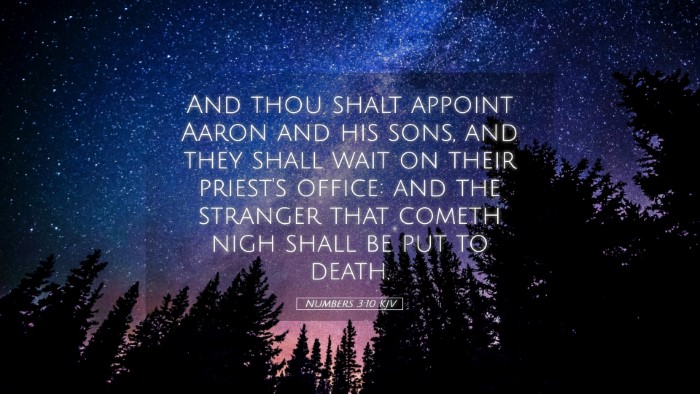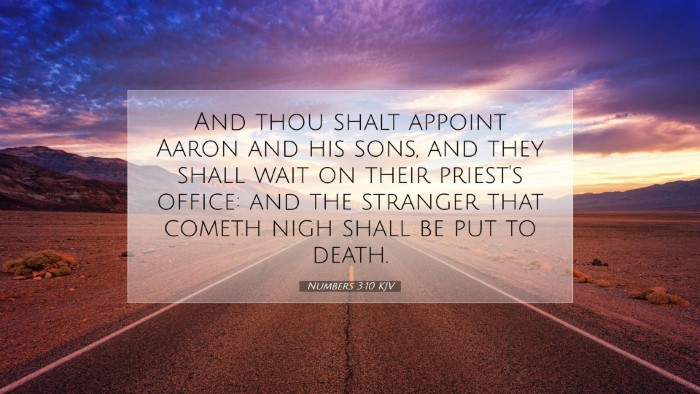Commentary on Numbers 3:10
Numbers 3:10 states, "And thou shalt appoint Aaron and his sons, and they shall wait on their priest's office: and the stranger that cometh nigh shall be put to death." This verse holds significant theological and organizational implications within the covenant community of Israel. It reflects the holiness required for divine service and the strict boundary God places around His priesthood.
Understanding the Context
The Book of Numbers, situated in the Torah, follows the Book of Exodus, where the establishment of the priesthood is first noted. This verse is situated within the larger narrative of the Levitical priesthood, emphasizing the sanctity of those who serve in religious functions.
Divine Appointment
As noted by Matthew Henry, this appointment is divinely instituted. Aaron and his sons are not self-appointed; their roles as priests are established by God Himself. This underscores the importance of discernment and authority in spiritual leadership. Here are a few key points:
- Divine authority: Authority in matters of faith and practice comes from God, not from human consensus.
- Holy calling: The priesthood is a sacred office, set apart for specific duties and responsibilities.
- Sacred tasks: The priests are charged with mediating the relationship between God and His people, signifying the importance of purity in fulfilling divine duties.
The Need for Holiness
Albert Barnes emphasizes the necessity of holiness within the priesthood, noting the phrase "the stranger that cometh nigh shall be put to death." This harsh command serves several purposes:
- Protection of sanctity: The physical proximity of an unordained person to the sacred duties indicates a lack of reverence for what is holy.
- Judgment on violation: This severe penalty demonstrates how seriously God regards the sanctity of His worship and the role of its ministers.
- Guarding the sacred: The church, as the modern analogue to the Israelite community, must also be careful to guard the sanctity of its ministry and worship practices.
Role of the Priests
Understanding the role of the priests helps illuminate the New Testament teachings about the priesthood of all believers. Adam Clarke articulates that:
- Representation: The priests serve as representatives of the people before God, which is fulfilled in Christ, our High Priest.
- Intercession: They conduct sacrifices and rituals that facilitate the people's relationship with God, foreshadowing Christ's ultimate sacrifice.
- Teaching: Beyond rituals, they are responsible for imparting God’s law and maintaining its observance.
Theological Reflections
This passage carries theological implications that extend beyond historical Israel:
- God's Holiness: It underscores the theme of divine holiness, where nothing impure can approach the presence of a holy God, reminding believers of the need for atonement through Christ.
- Covenantal Relationship: The setup indicates God's desire for a mediated relationship, ultimately leading to the fuller revelation of that relationship through Jesus Christ.
- Church Authority: It raises questions regarding authority and service within the church today, challenging believers to consider who is set apart for specific ministry roles.
Practical Applications
The insights gleaned from Numbers 3:10 encourage contemporary Christians to reflect on several critical areas of practice:
- Respect for Ministry: Just as the Levitical priests were unique and set apart, so too are those called to serve in ministry today. Acknowledge and respect the holiness of their calling.
- Personal Holiness: Believers are encouraged to pursue personal holiness as a reflection of their calling as part of a royal priesthood.
- Community Understanding: The church should cultivate an understanding that the ministry is not for the casual or irreverent, creating an atmosphere that honors God's presence.
Conclusion
Numbers 3:10 provides profound insights into the nature of God’s holiness, the seriousness of His call to leadership, and the sanctity of the priestly role. For pastors, theologians, and scholars, it serves as a reminder of the depth of responsibility associated with spiritual leadership and the continuous need for reverence in approaching God's holiness.


